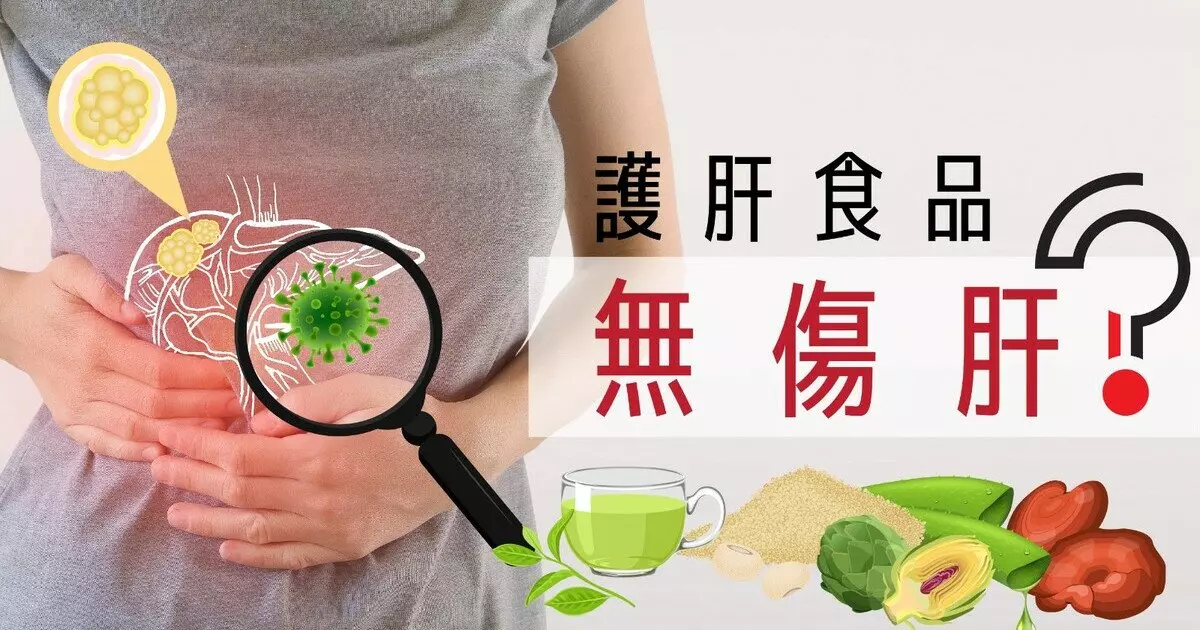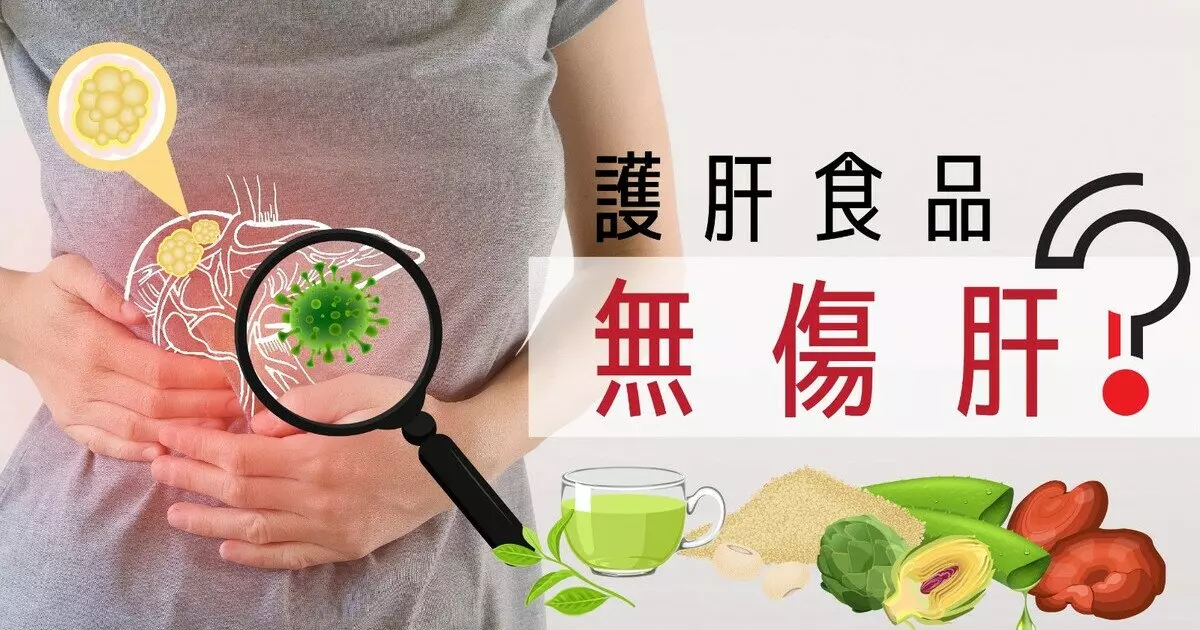The Role of the Liver is Far More Complex Than You Think
The liver is the largest metabolic organ in the human body, responsible for multiple tasks such as nutrient conversion, toxin metabolism, energy storage, bile synthesis, and immune regulation. It lacks pain receptors, so damage is often not easily detected. Many chronic liver diseases (such as fatty liver, hepatitis, and cirrhosis) often show no obvious symptoms in the early stages.
The liver's "detoxification" function is often misunderstood as the ability to completely eliminate external toxins, but in fact, the liver converts drugs, alcohol, metabolic waste, and more into water-soluble substances through enzyme systems, which are then excreted via bile or urine. This is a highly complex chemical processing process, rather than a "filter" or "vacuum cleaner."
This is very important—the liver can repair itself, but it is not invincible; it does not immediately "detoxify" just by drinking a bowl of soup or eating some herbal food. What is referred to as a "liver-protecting diet" is more accurately about reducing the liver's burden, maintaining metabolic balance, and supporting its self-repair capabilities.
The "Detox" of Mung Bean Soup is a Traditional Chinese Medicine Concept; What Do Modern Studies Say?
Mung bean soup is praised as a "holy product for clearing heat and detoxifying," especially popular in summer. Its "detox" claim originates from records in the "Compendium of Materia Medica" and "Shennong's Herbal Classic," used to treat abscesses, heat symptoms, and summer heat caused by heat toxins.
Modern nutritional analysis shows that mung beans are rich in B vitamins, potassium, calcium, iron, and antioxidant components such as flavonoids and polyphenols. The polyphenols and tannins in mung beans have certain free radical scavenging abilities, which help with antioxidant and anti-inflammatory effects. Mung bean protein also has some liver-protective potential, showing trends of improving alcoholic liver damage in animal models.
However, the problem is that some of these components in mung bean soup are lost after being boiled at high temperatures. Commercial sweet mung bean soup is often a high-sugar beverage and does not have actual "liver-protecting" functions. It can be consumed in moderation for cooling and hydrating, but should not be attributed with miraculous functions like "detoxifying and eliminating alcohol."
For example, Mr. Zhang drank heavily at a gathering and then went home to drink two bowls of mung bean soup to "detoxify and protect his liver," but he still felt bloated and had a headache in the early morning. The doctor pointed out that detoxification relies on the liver's metabolism of ethanol, and mung bean soup cannot intervene in this metabolic pathway. Its "detox" claim is more applicable to the traditional Chinese medicine concept of "heat toxins" and is not suitable for the logic of modern alcohol poisoning treatment.

Common "Liver-Protecting Foods" Review: Which Ones Have Evidence to Support Them?
Among the many ingredients claiming to "nourish the liver," some do indeed have preliminary support from modern research. Here are a few representative foods:
1. Goji Berries
Contain natural polysaccharides, carotenoids, and flavonoids. Animal studies show that goji polysaccharides can reduce oxidative stress and improve fatty liver conditions, showing some liver-protective potential. However, its effects are still mainly auxiliary and cannot replace medication.
2. Kudzu Root
Contains isoflavones (such as puerarin), which have shown effects in improving alcoholic liver damage in mouse models. However, human data is still limited, and it should not be regarded as a daily "alcohol detox miracle."
3. Cruciferous Vegetables like Broccoli and Cabbage
Rich in glucosinolates, which can induce liver detoxification enzyme activity, making them a recommended diet for "supporting liver function." Consuming an adequate amount of green vegetables daily is beneficial for maintaining stable liver metabolism.
4. Fruits like Grapes and Grapefruit
Grape skins contain resveratrol, which has certain antioxidant capabilities; grapefruit contains flavonoids like naringin, which have also been studied for assisting liver enzyme regulation. However, grapefruit can interfere with the metabolism of certain medications and should be consumed with caution.
5. Coffee
Surprisingly, coffee may be the daily beverage with the most researched liver-protective effects. Multiple epidemiological studies have found that moderate coffee consumption (2-3 cups per day) can reduce the risk of non-alcoholic fatty liver, cirrhosis, and liver cancer. This may be related to its regulation of liver enzymes, anti-inflammatory effects, and promotion of autophagy mechanisms.
However, it is important to note that "liver-protecting coffee" does not refer to sugary, milky coffee drinks, but rather to unsweetened black coffee. If it causes stomach discomfort or sleep disturbances after consumption, the intake should be adjusted accordingly.
What Really Harms the Liver are These Common Daily Habits
When discussing "liver protection," it is more important to first talk about "avoiding harm." Here are several commonly overlooked but frequent "daily liver-damaging behaviors":
Excessive Alcohol Consumption
Alcohol is the most common liver toxin, and sustained high-intensity drinking can lead to fatty liver, alcoholic hepatitis, and even cirrhosis. Relying solely on food to "detoxify" or "nourish the liver" is almost ineffective; quitting alcohol is fundamental.
High-Fat, High-Sugar Diet
Excessive intake of sweets, fried foods, and processed meats can increase the liver's lipid metabolism burden and promote the progression of non-alcoholic fatty liver.
Long-Term Irregular Medication Use
Some painkillers, anti-tuberculosis drugs, and lipid-lowering medications are metabolized in the liver. If used excessively or abused, they may cause drug-induced liver injury. Medication should be taken according to medical advice, and liver enzyme levels should be monitored regularly.
Sleep Disorders
The activity of liver metabolic enzymes is regulated by biological rhythms, and irregular sleep patterns may affect liver cell repair and bile secretion. Maintaining regular sleep is the most natural "liver protection method."
For example, Mr. Liang, who often works overtime, has a habit of ordering takeout late at night, with irregular meal times. A health check revealed elevated alanine aminotransferase levels, indicating early fatty liver. Adjusting his schedule and diet is a key intervention compared to taking "liver protection pills" or drinking goji berry water.
"Detox" and "Liver Nourishment": Scientific Concepts Need Clarification
"Detox" is a health concept that has been widely misused in recent years, often used to promote various drinks, foods, and dietary plans. However, in modern medicine, the liver, kidneys, skin, lungs, intestines, and other systems already have detoxification and metabolic functions.
Most "detox meals" and "detox drinks" lack scientific basis, and some "fasting methods" and "juice detox" may even cause electrolyte imbalances and malnutrition.
The liver is not a "blocked pipe that needs to be cleared," but a complex biochemical factory. What truly supports it is not a single food, but an overall adjustment of lifestyle.
Additionally, so-called "liver-protecting health products" should also be approached with caution. Some herbal health products may even induce liver toxicity, such as those containing aristolochic acid, which have been confirmed to pose cancer and liver damage risks.
If liver function abnormalities occur, regular hospital testing and treatment should be prioritized, rather than self-medicating with dietary therapy, which may delay diagnosis and treatment.
Key Points for Establishing a Healthy Liver-Protecting Diet Structure
Instead of chasing a single "liver-protecting miracle food," it is better to return to the principles of a scientifically balanced diet. Here are some liver-protecting strategies that can be implemented in daily eating:
Adequate but not Excessive Protein: Appropriate amounts of high-quality protein can promote liver cell repair, with recommendations to include fish, beans, and eggs in the diet.
Control Fat Ratios: Reduce saturated and trans fats, and choose sources of unsaturated fats such as olive oil, nuts, and deep-sea fish.
Daily Fruits and Vegetables of No Less Than 500 Grams: Providing antioxidants, dietary fiber, and various vitamins, these are the most natural "liver support substances."
Drink Plenty of Water but Avoid Excessive Water Detoxification: Adequate hydration helps with the excretion of metabolic products, but there is no need to "flood" the body with water, which can lead to water intoxication risks.
Avoid "Quick Detox Methods": Reject the popular "detox teas" and "seven-day liver cleansing plans" found online; long-term sustainable changes are what truly matter.
For example, Ms. Chen improved her diet for fatty liver by adding an egg and soy milk to her breakfast daily, controlling carbohydrate intake at lunch with mainly steamed vegetables, and keeping dinner light and regular. After two months, her liver enzymes improved significantly, and she lost 3 kilograms. This is far more effective than drinking goji berry water every day.
